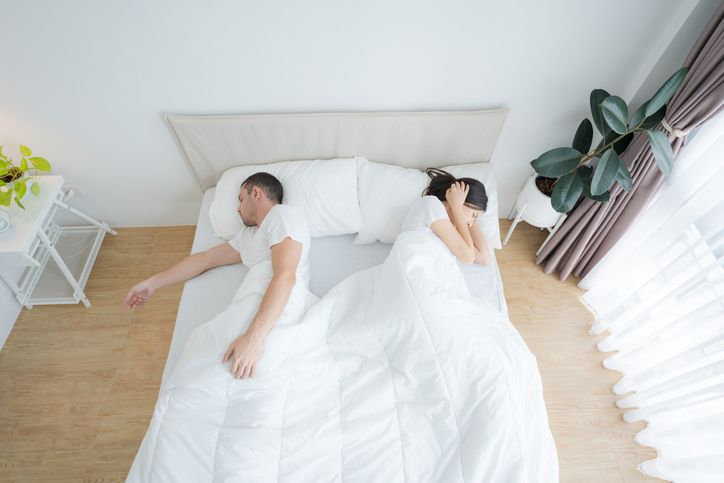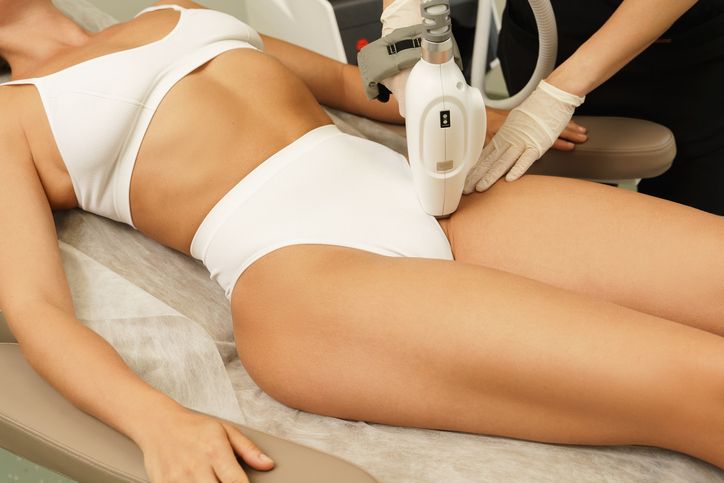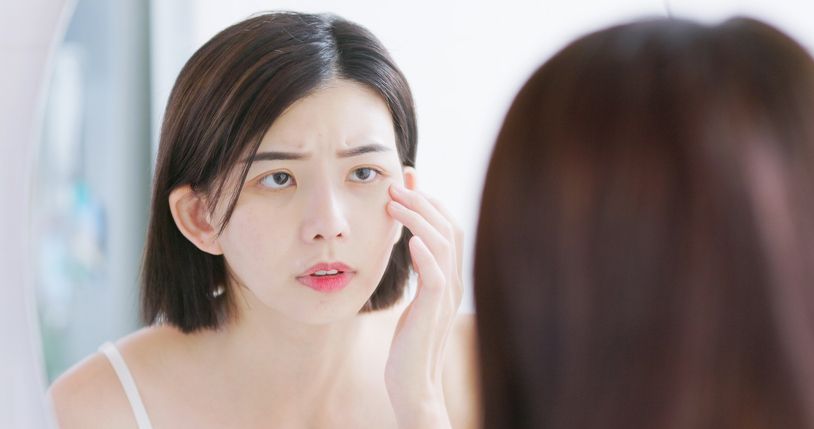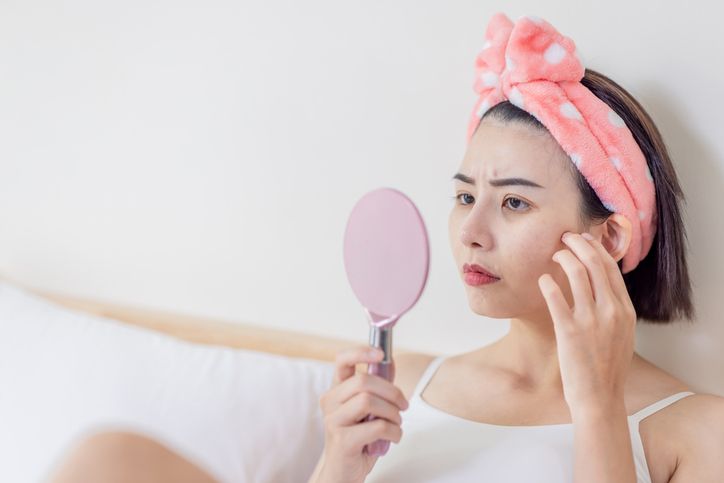- Home
- Trend
- Weight Loss Strategies
- Acne Tips
- Hair Health Information
- Blemish Removal Tips
- Acne Scar Removal Tips
- Muscle Building Techniques
- Intimate Care Tips
- Postpartum Intimate Care
- Eye Bags Wiki
- Tips for Face Slimming
- Secret of Permanent Hair Removal
- Breast Enlargement Tips
- Cure to Snoring
- Marionette Lines
- Skin-Tightening Secrets

免費體驗
Fotona 4D NightLase Snoring Treatment
1 Minute Self-Registration
Date should not be before minimal date
Snoring can turn peaceful nights into sleepless struggles, affecting not only your own sleep but also that of your partner. Whether you are the snorer or the partner of a snorer, the quest for a peaceful night's rest is a shared goal. Fortunately, the market offers a range of anti-snoring devices designed to tackle snoring from various angles, providing you with effective and comfortable solutions. In this article, we will delve into the world of anti-snoring devices, exploring their features, benefits, and the potential for a quiet and undisturbed slumber.
1
Understanding Snoring and Its Impact
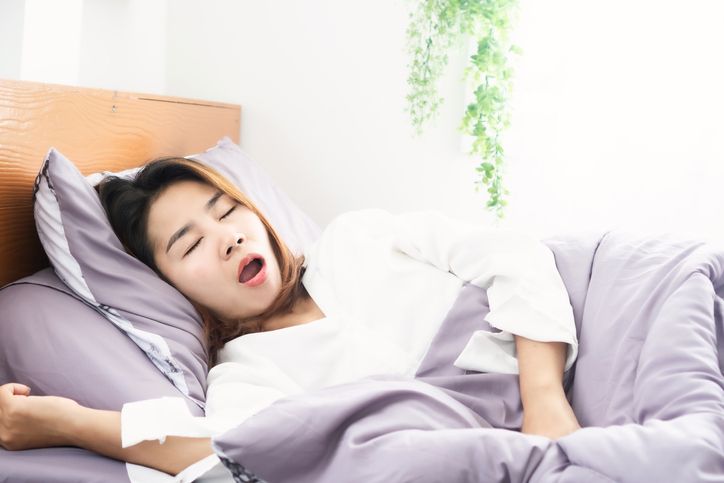
Snoring occurs when the flow of air through the mouth and nose is obstructed during sleep. The resulting vibration of soft tissues in the throat causes the familiar snoring sound. While occasional snoring is common and usually harmless, chronic snoring can disrupt sleep patterns, leading to daytime fatigue, irritability, and even relationship strain. Finding an effective anti-snoring device can significantly improve sleep quality and overall well-being.
2
When Does a Person Need an Anti Snoring Device?
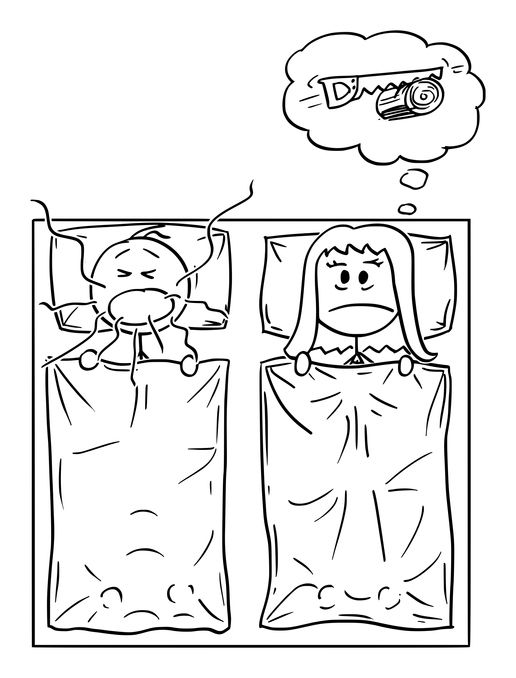
Snoring is a common sleep-related issue that affects both the snorer and their sleep partner. It occurs when the flow of air through the nose and mouth is obstructed during sleep, leading to the vibration of the surrounding tissues and the production of noise. Snoring can be disruptive, affecting the quality of sleep for both the individual and their partner, and in some cases, it may be a sign of an underlying health condition.
1. Sleep apnea
Sleep apnea is a serious sleep disorder in which the airway becomes partially or completely blocked during sleep, resulting in recurrent pauses in breathing. These pauses can last for a few seconds to minutes and lead to loud snoring when breathing resumes. Sleep apnea can significantly impact the individual's sleep quality and overall health. If someone suspects they have sleep apnea or has been diagnosed with it, they will likely need an anti-snoring device such as a Continuous Positive Airway Pressure (CPAP) machine. A CPAP machine provides a constant flow of air, preventing the airway from collapsing and maintaining regular breathing during sleep.
2. Nasal congestion
Snoring may also be caused by temporary or chronic nasal congestion. Allergies, colds, sinus infections, or structural issues in the nasal passages can lead to difficulty breathing through the nose, forcing the individual to breathe through the mouth while sleeping. This mouth breathing can result in snoring. For people with nasal congestion-related snoring, nasal strips or nasal dilators may be helpful. These devices can open up the nasal passages, allowing for better airflow through the nose and reducing or eliminating snoring.
3. Obesity
Excess weight, especially around the neck and throat area, can contribute to snoring. The accumulation of fatty tissues in the throat narrows the airway, making it more likely to vibrate during breathing, leading to snoring. In such cases, weight loss and lifestyle changes may be recommended as part of the treatment. Additionally, some anti-snoring mouthpieces or oral appliances can help position the jaw and tongue in a way that keeps the airway open during sleep.
4. Alcohol and sedative use
Alcohol and sedatives act as muscle relaxants, including the muscles in the throat. When consumed before bedtime, these substances can lead to increased relaxation of the throat muscles, making the airway more likely to collapse during sleep, and snoring can occur. Avoiding alcohol and sedatives close to bedtime can be helpful in reducing snoring caused by this factor.
5. Sleep position
The sleeping position can influence snoring. Sleeping on the back can cause the base of the tongue and soft palate to collapse backward into the throat, obstructing the airway and leading to snoring. In some cases, positional therapy may be recommended, such as using anti-snoring pillows or wearing devices that encourage side sleeping.
If you experience persistent and disruptive snoring during sleep, it is essential to identify the underlying cause. Consulting a healthcare professional can help determine the reason for the snoring and the appropriate course of action. Depending on the cause, anti-snoring devices such as CPAP machines, nasal strips, nasal dilators, oral appliances, or positional therapy aids may be recommended to improve sleep quality and reduce snoring.
3
Choosing the Right Anti-Snoring Device for You
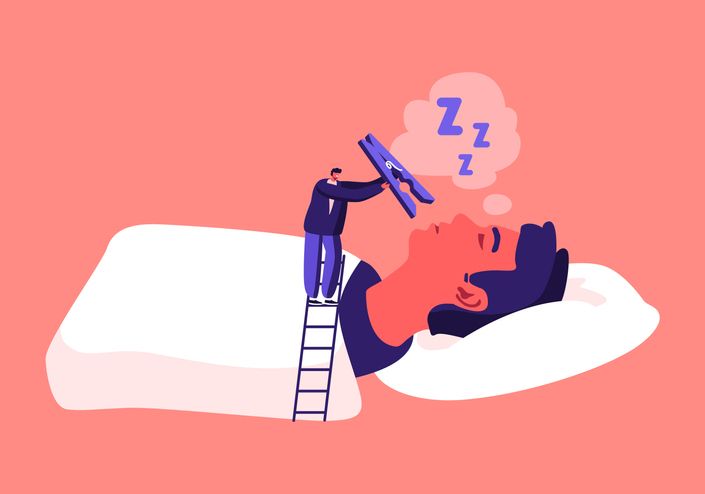
Finding the best anti-snoring devices among many of them requires understanding the underlying cause of your snoring and considering your personal preferences. Snoring can have various contributing factors, and different devices are designed to address specific issues. To make an informed decision, consider the following factors:
1. Type of snoring
It's essential to identify the type of snoring you experience. Is it caused by mouth breathing, nasal congestion, or a combination of factors? For mouth-related snoring, anti-snoring mouthpieces or chin straps may be more effective as they help keep the jaw and mouth in a favourable position to prevent airway obstruction. If nasal congestion is a significant factor, nasal dilators or nasal strips that open up the nasal passages may be more suitable.
2. Comfort
Comfort is a critical factor when choosing an anti-snoring device. A comfortable device is more likely to be used consistently throughout the night. Devices that cause discomfort, irritation, or pain may lead to decreased compliance and may not effectively address the snoring problem. Look for devices that have smooth edges, are made of soft materials, and do not cause pressure points.
3. Adjustability
Everyone's jaw size and shape are different, so an ideal anti-snoring device should be adjustable to provide a more personalised fit. Adjustable devices can be customised to fit your jaw comfortably, ensuring optimal effectiveness in keeping the airway open. Many anti-snoring mouthpieces and chin straps come with adjustable features to accommodate various jaw sizes.
4. Ease of use
Consider the ease of use and maintenance when choosing an anti-snoring device. Some devices may require regular cleaning to maintain hygiene. Look for devices that are easy to clean and do not have intricate parts that are difficult to maintain. Additionally, devices that are easy to put on and take off can make the overall experience more user-friendly.
5. Medical conditions
If you suspect that your snoring is associated with an underlying medical condition, such as sleep apnea, it's crucial to consult a healthcare professional before using any anti-snoring device. Sleep apnea is a serious sleep disorder that requires proper diagnosis and treatment, and a healthcare professional can recommend the most appropriate course of action, which may include a Continuous Positive Airway Pressure (CPAP) machine or other therapies.
4
Minimise Snoring with the Right Anti-Snoring Devices
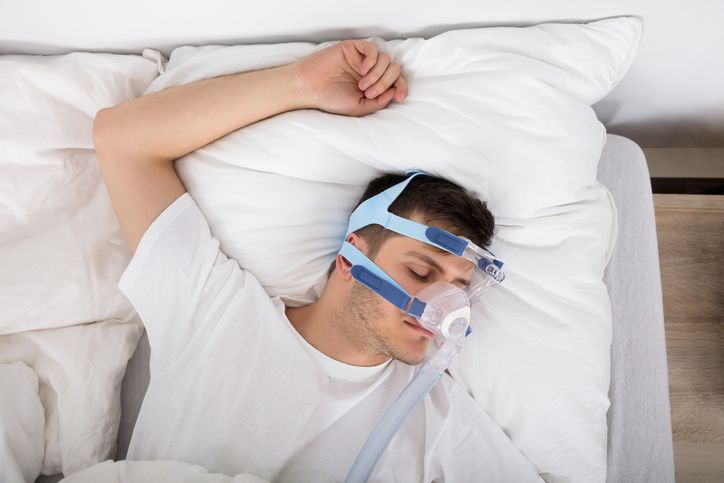
There is no one-size-fits-all solution to snoring, as the causes can vary from person to person. Anti-snoring devices come in various forms, such as nasal strips, oral appliances, or continuous positive airway pressure (CPAP) machines. These devices are designed to keep the airway open and prevent snoring, helping the person and their sleep partner get a more restful night's sleep.
The following are some popular types of anti-snoring devices that have been proven to be effective for many individuals:
Anti-snoring mouthpieces
Also known as mandibular advancement devices (MADs) or dental appliances, anti-snoring mouthpieces are one of the most common and widely used devices for snoring treatment. These oral devices are custom-fit or adjustable and are designed to be worn in the mouth during sleep. They work by holding the lower jaw in a slightly forward position, which helps to keep the airway open and prevents the tongue and soft tissues from blocking the back of the throat. By maintaining an unobstructed airflow, snoring is significantly reduced or eliminated. Anti-snoring mouthpieces are generally considered comfortable and effective for mild to moderate snoring cases, especially when the snoring is related to the jaw and throat muscles' positioning.
Nasal dilators
Nasal dilators are small, lightweight devices that are inserted into the nostrils to help widen the nasal passages. These devices can be made of various materials, such as silicone or plastic, and they work by physically opening the nasal airway. By doing so, nasal dilators facilitate smoother airflow through the nose, reducing nasal congestion and snoring. Nasal dilators are particularly useful for individuals who experience snoring due to nasal blockages caused by allergies, colds, or sinus issues. They are generally non-invasive and can be a convenient option for people who prefer not to wear devices in their mouth during sleep.
Chin straps
Chin straps, also known as chin supporters or chin-up strips, are fabric straps that are worn around the head and under the chin. The purpose of a chin strap is to provide support to the jaw and keep the mouth closed during sleep. By promoting a closed-mouth sleeping position, chin straps aim to reduce the chances of mouth breathing, which can lead to snoring. Chin straps are often used as an alternative to mouthpieces, especially for those who find mouthpieces uncomfortable or have dental issues that make them unsuitable for oral devices. However, their effectiveness may vary depending on the individual's snoring patterns and the underlying cause of snoring.
Anti-snoring pillows
Anti-snoring pillows are specially designed pillows that aim to improve head and neck alignment during sleep. These pillows are often contoured and provide additional support to the neck and head, encouraging a healthier sleeping posture. By keeping the airway aligned and open, anti-snoring pillows can help reduce snoring, particularly if the snoring is related to the sleeping position. While they can be beneficial for some individuals, their effectiveness may vary depending on the specific cause of snoring, and they may not be sufficient as a standalone treatment for severe snoring or sleep apnea.
CPAP machines
Continuous Positive Airway Pressure (CPAP) machines are medical devices commonly prescribed for individuals with sleep apnea, a condition characterised by frequent pauses in breathing during sleep. A CPAP machine delivers a constant flow of pressurised air through a mask that covers the nose and/or mouth, creating a pneumatic splint that keeps the airway open. This constant positive pressure prevents the airway from collapsing and maintains regular breathing throughout the night, effectively eliminating snoring in cases of sleep apnea. CPAP therapy is considered the gold standard treatment for obstructive sleep apnea and can significantly improve sleep quality and overall health for those who require it.

免費體驗
Fotona 4D NightLase Snoring Treatment
1 Minute Self-Registration
Date should not be before minimal date
5
The Benefits of Combining Anti-Snoring Devices and Snoring Treatment
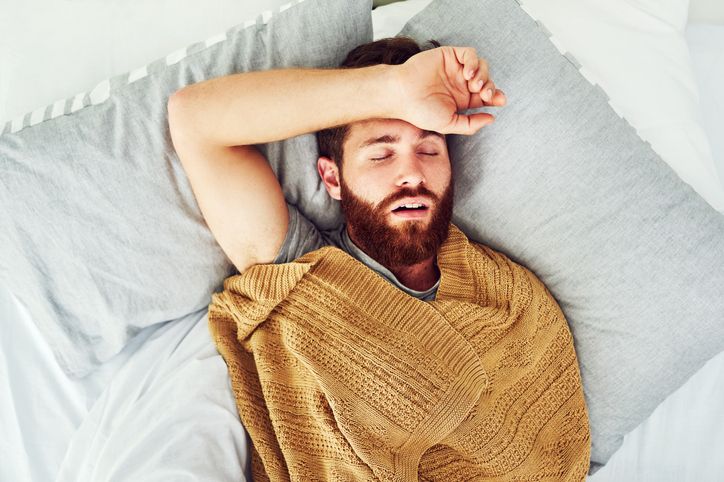
Combining an anti-snoring device with a suitable snoring treatment can be highly beneficial in addressing snoring and improving sleep quality. One effective treatment option is the Fotona 4D NightLase Snoring Treatment, which is a non-invasive, painless, and non-surgical procedure that utilises NightLase Laser Technology to target and tighten the collagen fibrous networks of the mouth tissues. This treatment helps to reduce the size of the tissues, effectively opening up the airway and reducing snoring.
When dealing with snoring, it is essential to consider the underlying cause of the issue, as snoring can be caused by various factors, such as mouth breathing, nasal congestion, or obstructive sleep apnea. By combining the appropriate anti-snoring device with a treatment like the Fotona 4D NightLase Snoring Treatment, you can achieve comprehensive snoring relief. Here are some benefits you can enjoy by combining snoring treatment and an anti-snoring device:
Enhanced effectiveness
By using a targeted snoring treatment like the Fotona 4D NightLase alongside an anti-snoring device, you address multiple aspects contributing to snoring. The anti-snoring device can focus on specific snoring causes, such as mouth positioning or nasal congestion, while the snoring treatment works to reduce the tissue size in the mouth, further improving airflow and reducing snoring.
Customised approach
Combining different snoring solutions allows for a more personalised approach to snoring management. An anti-snoring device can be adjusted to fit your jaw or nose comfortably, while the Fotona 4D NightLase Treatment can be tailored to address the specific tissue areas in your mouth, providing targeted results.
Faster recovery
Integrating an anti-snoring device and treatment may lead to quicker recovery and snoring relief. With non-invasive treatments like the Fotona 4D NightLase, there is no need for surgery or downtime, and you can resume your normal daily activities, including using the anti-snoring device, immediately after the treatment.
Improved sleep quality
Combining snoring treatment and an anti-snoring device can significantly improve sleep quality for both the snorer and their sleep partner. By reducing or eliminating snoring, the individual can experience more restful sleep, leading to increased daytime energy and improved overall well-being.
Long-term benefits
While anti-snoring devices can provide immediate relief during sleep, treatments like the Fotona 4D NightLase can offer long-term benefits. By targeting and reducing the size of mouth tissues responsible for snoring, the treatment can lead to sustained improvements in snoring over time.
6
Last Few Words
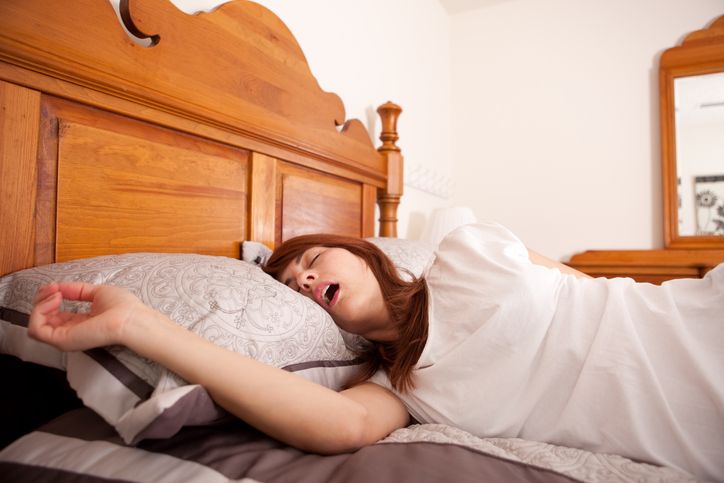
Addressing snoring with a combined approach of an anti-snoring device and a suitable snoring treatment, such as the Fotona 4D NightLase Treatment, can provide comprehensive and effective relief. It is essential to consult the professional to determine the best combination of treatments for your specific snoring condition and to ensure that any underlying medical issues are properly evaluated and addressed. With the right combination of treatments, you can significantly enhance your sleep quality and overall well-being.

免費體驗
Fotona 4D NightLase Snoring Treatment
1 Minute Self-Registration
Date should not be before minimal date
FAQ

1. Can anti-snoring devices cure sleep apnea?
While anti-snoring devices can alleviate snoring caused by sleep apnea, they may not cure the underlying condition. Sleep apnea is a serious medical condition where the airway becomes partially or completely blocked during sleep, leading to breathing interruptions. Anti-snoring devices like Continuous Positive Airway Pressure (CPAP) machines can effectively treat sleep apnea by providing a constant flow of air to keep the airway open. However, these devices primarily manage the symptoms rather than curing sleep apnea itself. It is crucial for individuals with suspected or diagnosed sleep apnea to consult a healthcare professional for a proper diagnosis and treatment plan tailored to their specific condition.
2. Are anti-snoring devices safe to use?
In general, anti-snoring devices are safe to use for the majority of individuals. Most anti-snoring devices, such as oral mouthpieces, nasal dilators, chin straps, and anti-snoring pillows, are non-invasive and do not pose significant risks when used as directed. However, some people may experience mild discomfort or soreness in the initial stages of using these devices as their body adjusts to the new position or pressure. This discomfort is typically temporary and should subside with continued use.
3. Can anti-snoring devices be used by anyone?
Anti-snoring devices are generally designed for adults and should be used as directed by the manufacturer. While many individuals can benefit from using anti-snoring devices, some factors may affect their suitability for certain individuals. For example, people with certain medical conditions, such as temporomandibular joint (TMJ) disorders or severe respiratory issues, may need to avoid specific types of devices. Additionally, the fit and effectiveness of some devices, such as oral mouthpieces, can vary based on individual jaw structure and dental health.
4. What is the cost of anti-snoring devices?
The cost of anti-snoring devices can vary widely depending on the type of device and its features. Over-the-counter anti-snoring devices like nasal strips or nasal dilators are generally more affordable, with prices ranging from a few dollars to around $30. Custom-fit oral mouthpieces may cost more, typically ranging from $50 to $200. CPAP machines, which are used for sleep apnea treatment, can range from several hundred to over a thousand dollars, depending on the model and features.
5. Can tongue retaining devices help with snoring?
Yes, tongue retaining devices can be effective in reducing snoring in certain individuals. These devices, also known as tongue stabilising devices (TSDs), are designed to hold the tongue forward during sleep, preventing it from falling back and obstructing the airway. This forward positioning helps to maintain an open airway, reducing the likelihood of snoring. Tongue retaining devices can be particularly useful for individuals who experience snoring due to the tongue's position and muscle relaxation during sleep. However, as with any anti-snoring device, the effectiveness of a tongue retaining device may vary depending on the individual's specific snoring patterns and the underlying cause of their snoring.





